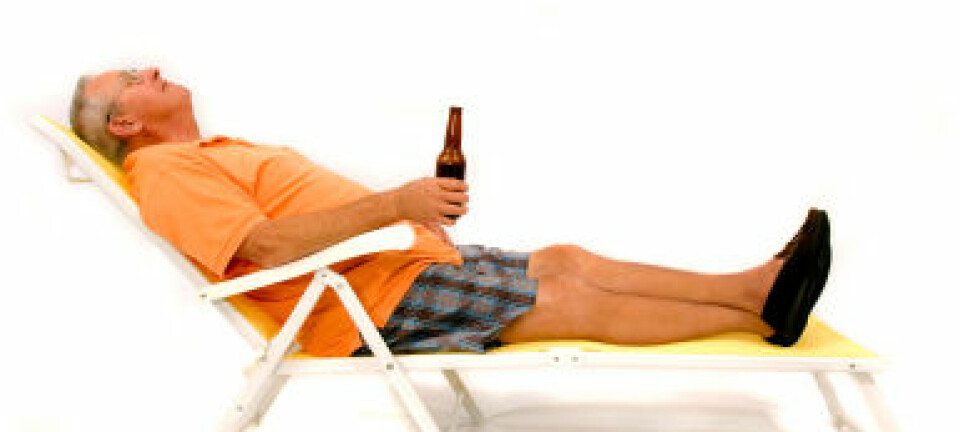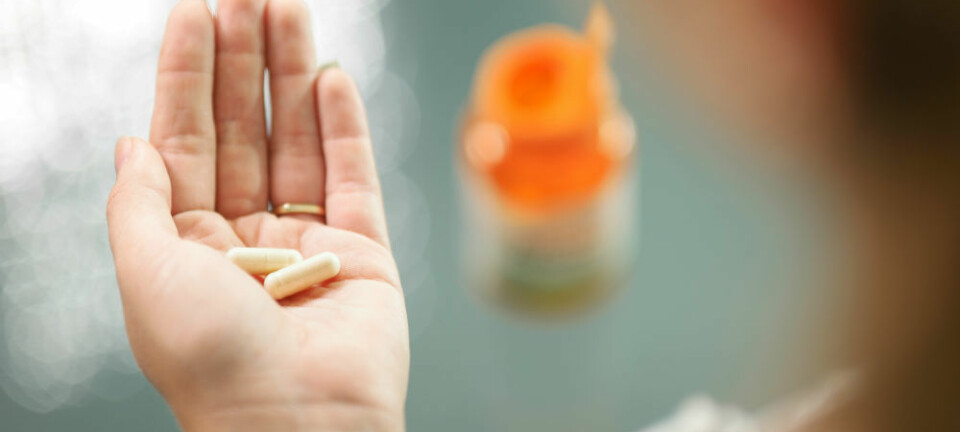
Depression and anxiety are common after stroke
People who have had a stroke should be checked for signs of anxiety and depression, a physician and researcher says.
Even the common name for the illness — stroke — suggests how quickly and unexpectedly this affliction can turn your life upside down.
One day you are healthy, and the next day you are sick.
It is natural for people in this situation to grieve, says Hege Ihle-Hansen, senior consultant at the stroke unit at the Oslo University Hospital.
“But it is possible for us to do a better job of preventing other emotional reactions to stroke, such as anxiety, depression, apathy and fatigue,” she said.
Communication can be difficult
Studies from across the globe show that between 20 and 40 per cent of people who have had a stroke suffer from depression and anxiety afterwards. The finding holds true for both mild and severe strokes. And the risk persists over time.
Much of the reason for this relates to the underlying vascular disease in the brain that led to the stroke. But there is also a psychological aspect — a stroke can change a person’s life in a heartbeat.
A stroke can result in language difficulties such as aphasia, an inability or difficulty to understand speech or to speak. It can also cause personality changes and other cognitive problems—including difficulty concentrating and memory loss.
Family life affected
Many of these consequences have implications for family communication, according to a doctoral thesis by Gabriele Kitzmüller at the University of Tromsø.
Communication is central to family life, and is often a major challenge after stroke. In addition to language difficulties and cognitive difficulties, many living with stroke suffer from fatigue that also affects family life.
It is not uncommon for people with chronic illnesses to be afflicted by depression. This is also true for people who have to cope with the consequences of a stroke.
“But many people who have had a stroke also struggle with what we call ‘hidden outcomes’. These are cognitive changes such as reductions in tempo, attention, concentration and memory. For these individuals, existence can be extra difficult after a stroke,” said Ihle-Hansen.
In spite of these problems, the medical profession has not paid much attention to the issue, in part because doctors are not that well informed about it, says Ihle-Hansen.
An increasing number of younger patients
Research shows that the incidence of strokes is on the increase in younger people.
Even though their stroke may be mild, younger individuals may also struggle with depression, apathy and lack of energy after a stroke. Many sufferers perceive themselves as slower, both physically and mentally.
“We need to know more about the extent of the problem, and what causes it so that we can do a better job helping,” says Ihle-Hansen.
One 2014 study showed that when doctors worked actively with patients to prevent a second stroke, patients suffered fewer emotional changes and less anxiety and depression.
“We think that's because these patients came regularly to talk to us. They felt greater confidence in themselves when they had greater access to physicians,” she said.
A consequence of stroke, not a personality failing
“We need to talk more about this and we need to help patients recognize that the aftermath of a stroke can be difficult,” says Ihle-Hansen.
This is particularly true when the patient is both apathetic and exhausted, she says.
“Many people feel that they just cannot get out of their own way. They know they should exercise but they can’t. When someone tells them that it is not a personality failure, but because of the actual stroke, it makes their life easier,” she said.
Patients should be offered psychotherapy and antidepressants earlier in the course of their treatment with the goal of reversing dark thoughts before depression sets in, says Ihle-Hansen.
People who do not seem to be so affected by the stroke may find themselves in an especially difficult situation, says Ihle-Hansen.
“Relatives, employers and friends tend to forget that you are sick. And it is expected that you will quickly bounce back to where you were before the stroke,” she said. “But one aspect of this disease is that it takes a long time to recover.”
-------------------------------------
Read the Norwegian version of this article at forskning.no
































